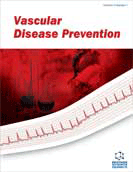Abstract
Increasing evidence suggests that postprandial remnants, including very-low-density lipoproteins and chylomicron remnants, are associated with coronary artery disease. A recently developed immunoseparation method provides a new approach for postprandial remnants analysis. Abnormal postprandial lipoprotein metabolism may cause a prothrombotic state and endothelial dysfunction. Postprandial remnant lipoproteins may accelerate smooth muscle cell proliferation, which may cause restenosis after coronary angioplasty. Recent studies have demonstrated the association between postprandial lipoprotein metabolism and insulin resistance, both of which increase the risk of coronary artery disease. We need to be aware of which agents, fibrates or statins, can adequately control postprandial remnant hyper-lipoproteinaemia. There is an urgent need to conduct large-scale, randomized, prospective studies focusing on postprandial lipid metabolism.
Keywords: chylomicron remnants, coronary artery disease, postprandial lipaemia, postprandial lipoproteins


